June 26, 2022
Welcome back to my Precepts series—tiny bite-sized bits of life advice from yours truly.
You can find the series in its entirety here.
Precept 19: Priorities
Does what you prioritize in life truly match up to your greatest fears, needs, and desires? For example, to be as vulnerable and honest as possible, I can tell you that one of my greatest fears in life is that I will lose one or both of my sons. What I mean by that is I sometimes wake up at night in a cold sweat with my heart pounding and thoughts deeply disturbed after having had a nightmare in which one of my sons, or both of them, have died. Or abandoned me. Or abandoned their faith in God. On the flip side, I don’t really fear death anywhere near as much as losing my sons. I don’t necessarily want to die, since I want to fulfill God’s purpose for my life as long as I possibly can, but I’m not that nervous, apprehensive, or fearful of the process of dying.
So now let’s step back and look at my priorities in life. Based on the fact that my deeper fear is losing my sons, but my lesser fear is dying, where should I spend the majority of my time: engaged in lift-extension, fitness, biohacking, and healthy aging strategies so that I can suck as many years as possible out of life, or engaged in deep, present time with my sons? When I realized that my priorities in life didn’t necessarily match my fears in life, I personally made some distinct lifestyle decisions to alter how I was living each day so that I could prioritize family more and myself less.
How about you? Does the way you live your life reflect your fears and your truest priorities? If not, you might be stuck in hypnotic rhythm that you must snap yourself out of (congratulations: the first step in that process is recognition of its necessity!). You may also need to embrace the discomfort of shedding the shell of a character you currently identify with (e.g. “the successful CEO,” “the hardcore athlete,” “the person who never ages,” etc.) so that you can embrace the character God has actually called you to be (e.g. “the inspirational author,” “the best parent in the world,” “the aged, wise mentor, etc.”). Otherwise, you may someday encounter a version of hell, namely, meeting the man or woman you could have been, but never became because you were so caught up in shallow desires and pursuits that you never recognized your true calling and highest priorities in life.
Precept 20: Where’s Your Trust?
As a self-professed health nerd and longtime advocate of healthy living, longevity, and “anti-aging” practices, wholesome nutrition, and even slightly more fringe modalities such as biohacking, alternative medicine, and herbal remedies, I often run the risk of placing my “trust” in supplements, superfoods, popular healing modalities, the perfect exercise and diet plan, and similar healthy living endeavors. When it comes to your own health, you may perhaps feel the same way, or you may place your trust in modern medicine, hospitals, allopathic physicians, physical therapy, and the like. Either way, no matter which way you tend to lean, both you and I live in an era in which we prioritize turning to medicine, supplements, food, lifestyle modifications, and our fellow medically-trained humans to help us solve injuries, diseases, ailments, and other health issues.
But lately, I’ve been reading a couple of books that have caused me to question the amount of trust I place in both alternative, natural or modern, allopathic medicine, namely: Pharmakeia: A Hidden Assassin by Ana Mendez Ferrell and Dead Doctors Don’t Lie by Dr. Joel Wallach.
If you stick with me here, I’ll do my best to explain. See, our bodies are amazing, intelligent organisms. The body was made by an all-knowing Creator to be strong and to be able to resist bacteria, parasites, infections, and disruptions of many sorts. Yet, we continuously hear statements such as: “when you age, your bones decay and become laden with osteoporosis,” “menopause is accompanied by depression and severe hormonal imbalances,” “men lose their libido and strength dramatically with age,” “these eighteen things are going to give you cancer,” “watch out, flu season is coming!” or “you’d be stupid not to be taking this particular supplement, superfood, or medication.” These popular thoughts, as well as many hundreds of other statements, along with the fear and hypochondriac symptoms often created by “Dr. Googling” ourselves, can condition our minds to make us prone to that which we fear could happen to us. Bruce Lipton describes this phenomenon quite beautifully in his book The Biology of Belief.
So the first problem is that we tend to constantly think something must be going wrong with our bodies. The second problem is that when something does go wrong (often as a result of our infatuation with the first problem), we don’t tend to turn to the original Mechanic who designed our engines, but rather to modern health and medicine. Consulting God should be our first and most natural reaction to ailments, but instead of saying “Consult God!” we are told to, “Consult your physician!”. Just think about it: when you get a sore throat, or you feel as though you’re coming down with something, or you hear about a friend who has cancer, what’s the first thing you do: pray…or ponder what doctor or biohack or supplement or medication could help that person?
This is not to say there is no place for medicine. The author of the book Pharmakeia that I mentioned earlier says, “There are obviously cases in which a surgery or the aid of paramedics, who have saved so many lives, is necessary. Of course, if somebody needs to be sutured, or put in a cast, or whatever is required because he (she) suffered an accident, a heart attack or something similar, the physicians need to treat him. Also, if childbirth puts the mother or the baby at risk, a c-section will be indispensable, and likewise procedures in other cases. What God wants us to realize, is what the pharmaceutical industry is doing to humanity and the abuses and aberrations they have reached with the marketing of medicine. Sickness has turned into something generalized. In expectation of selling more products, they have created what is known as preventive medicine and the risk factor. They try to fill us up with pharmaceutical products, because we may potentially generate a malady. In this fashion, they ensure that everyone becomes their client. Statistics show that 81 percent of the population in the western world is on medication.”
The problem is that medicine seems to have its origin in a misplaced trust—a trust in man and chemicals rather than the healing power of God. Ancient “Alchemy” (from the Arab al-khimia, the word from which allopathic medicine is derived) was an ancient practice and discipline that combined elements from chemistry, metallurgy, physics, medicine, astrology, semiotics, mysticism, spiritualism, and art. Alchemy was practiced in Mesopotamia, Ancient Egypt, Persia, India, China, Ancient Greece, the Roman Empire, the Islamic Empire, and later, in Europe until the 19th Century. It formed a complex network of schools and philosophic systems, which spanned at least 2,500 years. Western Alchemy is related to Hermetism, a philosophical and spiritual system, which has its roots in Hermes Trimegisto, a Greek-Egyptian deity and also in his human form, one of the greatest occultists. In modern times, Alchemy evolved into the current chemistry, but interestingly, Hermes, along with the group of pagan gods who were associated with alchemist and pharmacological systems, carry great importance among occultists.
Does this mean modern medicine and pharmaceuticals are evil? No! But it does mean that human beings seem to have a history of turning to these types of solutions in favor of turning to God: a case of misplaced trust. In a sense, constantly thinking we are sick, while simultaneously not giving a thought to God being the first entity we turn to when we need healing, seems to send the message that we really don’t believe that God designed our bodies very well and that we also don’t need our Creator’s healing power anymore because science now has medication and very powerful physicians.
But I just don’t think it’s a good idea to tell God: “I generally trust You, but when it comes to my health I instead mostly trust what science can do for me.” This is all the more true if you’ve been neglecting to care for the very part of you that will go on to live forever in eternity, a concept I describe in my books Fit Soul and Endure. A starved, shriveled up, and shrunken soul is in no state to radiate high frequencies and healthy energy to the body and brain. As the insightful book Medicine and Health Care in Early Christianity says,
“Early Christians viewed disease and physical impairment as part of the natural order of a fallen world that was under the dominion of sin and yet providentially ordered by a sovereign God. Christians valued medicine as God’s gift for the natural healing of disease. But for a Christian to seek medical healing apart from dependence on God, the Ultimate Healer, was to substitute reliance on medicine alone for a Christian approach.”
Ana experienced this realization and described in her book Pharmakeia,
“My life changed dramatically when I found out my soul and my body were in a state of spiritual anemia. I began to fast, first only from solid foods and began to feed myself with spiritual food all day long. Sometimes this would last until the dawn hours of the following day. The first thing I did was read the Bible from Genesis to Revelation. My encounters with the Holy Spirit changed from being occasional to becoming constant. His voice became clearer and stronger until the voices of doubt and unbelief ended up being practically mute. My spirit was gaining authority over my mind and over my body. I substituted the images of fear and skepticism I previously had with a type of knowledge that I cannot even describe with words…”.
So what is the takeaway message here?
First, don’t swear off alternative or modern medicine, but please trust God and go to Him first when you are injured or sick. Second, don’t believe the lie that your body is getting worse and worse by the day. Sure, all flesh eventually fades away, but you possess a far more wonderfully fabricated body and brain than most money-grabbing pharmaceutical commercials on TV would have you to believe, and by feeding your spirit daily and trusting God, you will better equip your biology to operate the way God intended it to. Finally, realize that the roots of anti-aging practices, supplements, medications, pharmaceuticals, and medicine, in general, originate from pagan practices that try to make humans mightier than God. That doesn’t mean we should swear them off, but we should constantly question with great wisdom and discernment the underlying motivation and message behind the health practices in which we participate. We should also, as I write about here, trust God but put on our seatbelt.
Precept 21: Prepared
Sometimes when I leave my home and family for business travel, I become sad. Something just feels empty and lonely inside. This doesn’t happen all of the time, but definitely happens some of the time. But here’s the thing: I’ve gradually begun to notice that the times I feel sad when I leave are correlated to periods of time when I haven’t been devoted to my family, been too busy working in the basement home office, or have generally had a low level of presence and time available for my family leading up to my business travel. This is particularly noticeable when I haven’t been spending time with my sons. See, a major role of a parent is to prepare their children for life. However, if you haven’t prepared your children by giving them time, presence, love, education, instruction, correction, etc., and then you temporarily leave, the angst that you are experiencing is likely related to the fact that you know deep down inside your children aren’t quite ready for you to be one.
So the only way you can walk away from your family, particularly your children, with a good conscience and not be sad to leave them is to live your days when you are home in such a way that you are “all in” for your family. If there’s angst in your soul when you leave, that’s a pretty good sign that you’re not spending the time that you do have at home in the right way with the proper priorities (see Precepts 19 on priorities). “For where your treasure is, there your heart will be also.” (Matthew 6:21)
That's it for this week! If you have questions, comments, or feedback below, please leave your thoughts. I read them all!


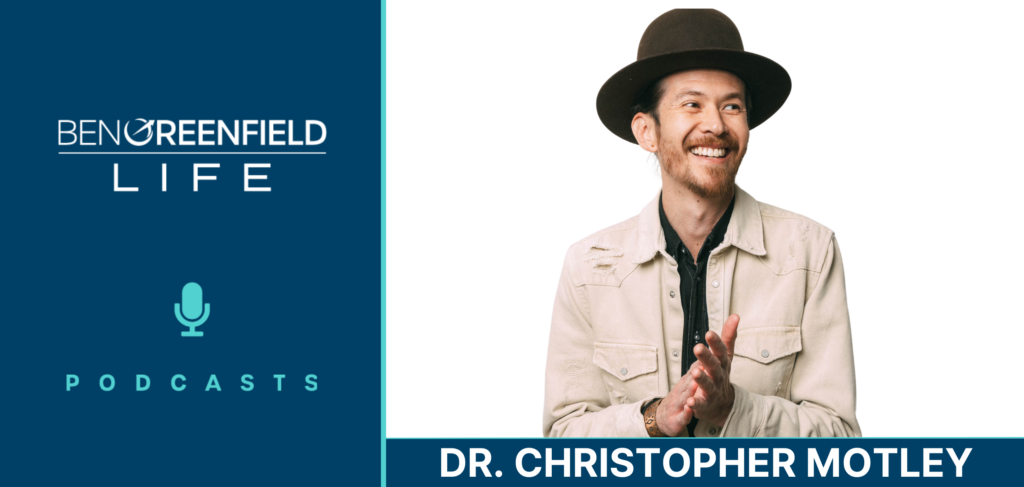
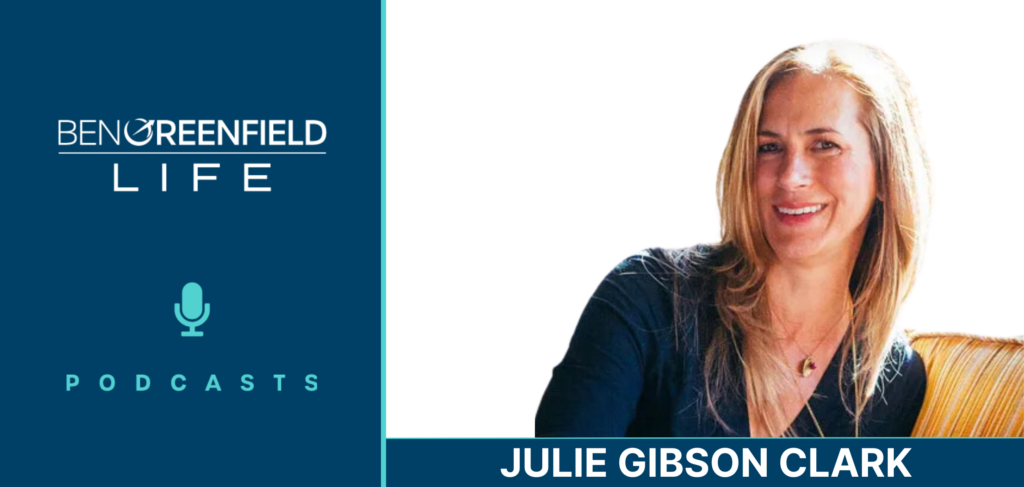


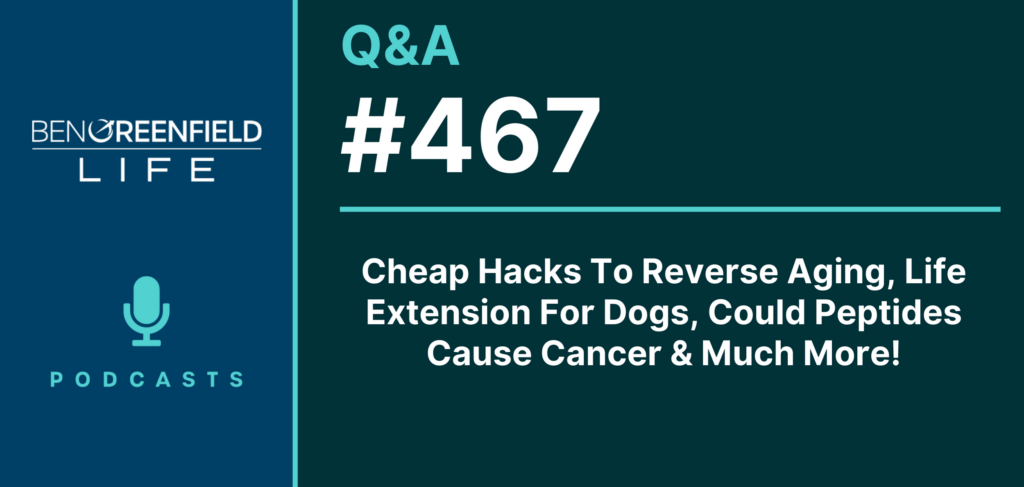

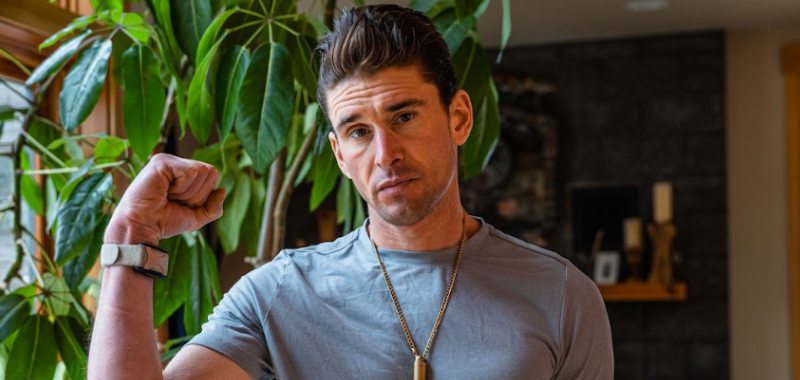
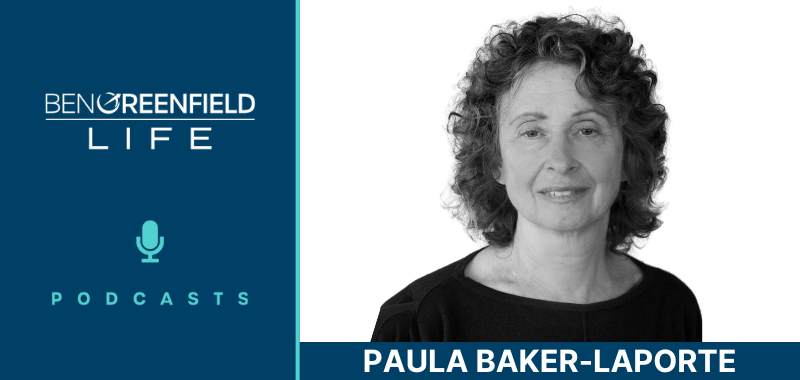



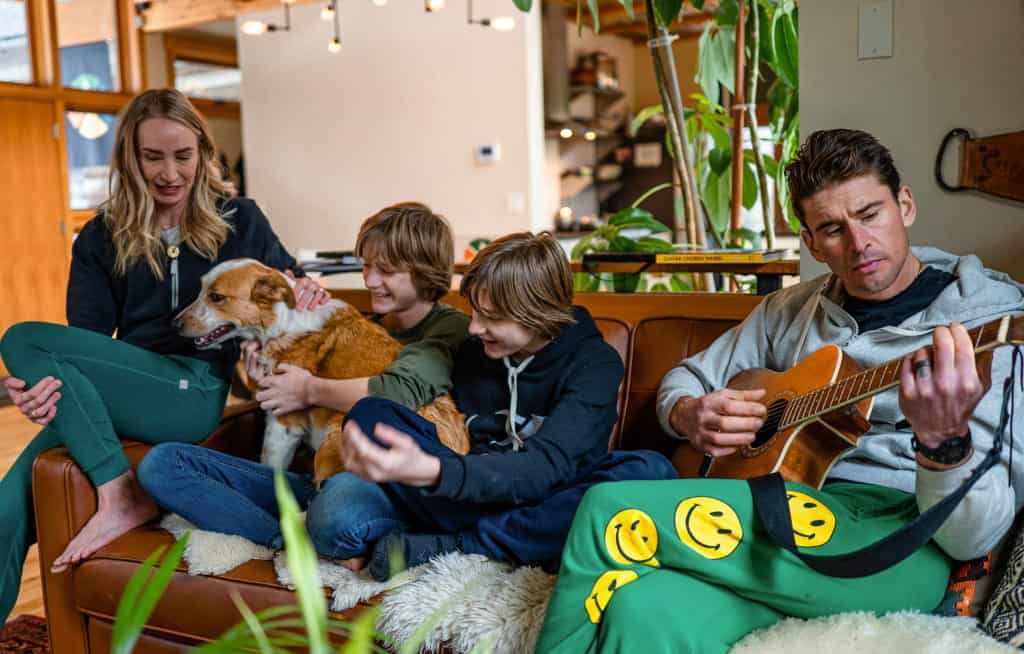
HI Ben. That’s a great picture!
I just want to ask that you not use the word “angst,” which has become a fad in the U.S. in the last few years or more, inappropriately, because the word then loses its ability to express its original meaning. It’s a German word, originating there by no mistake, given German personality and culture, expressed most poignantly in music. The sonata allegro musical form, a form about conflict and resolution used by composers of classical music was born in Germany (or what would become Germany). Thus the definition of “angst” is best appreciated by listening to Beethoven’s symphonies, or Brahms symphonies, or many, many other works in a minor key, including chamber music, and many other works in major keys, and especially (but not necessarily) movements in the sonata allegro form by German composers. I would also say, read a biography of Beethoven, although his music pretty much says it all. Start with his 3rd symphony. You will know what I mean in the development section of the first movement when you hear it (but don’t stop there!).
They key, which so many people misunderstand, is that angst is about inner conflict that is not resolvable by action, and is so gripping it may not be resolved in one’s lifetime. It is the inner conflict that endures for lifetimes and from which there is no escape, but only expression, and ultimately is resolved by requited Love, which is as well, the solution to life.
I think this is such an intuitive and well earned perspective. I got into Holistic Kinesiology to bypass all the fads, gimmicks, marketing etc. We weren’t put on this planet in a meat sack designed to get sick haha. Our body was created by a master and is intelligent beyond belief. If we let go of our emotions and our egos and allow the body to tell us what it needs to stay in balance, we can thrive for many many years. Thanks for all the work that you do and for sharing so much of yourself!
nice, ben.
surrender to love and all else will come well.
biurful family photo. the children are a spitting image of the folks, physically and certainly mentally & spiritually.